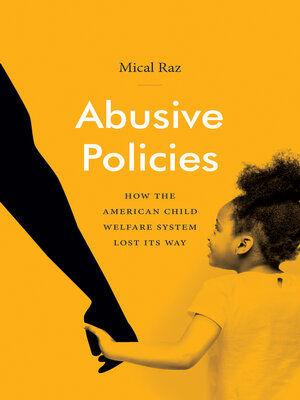Abusive Policies
ebook ∣ How the American Child Welfare System Lost Its Way · Studies in Social Medicine
By Mical Raz

Sign up to save your library
With an OverDrive account, you can save your favorite libraries for at-a-glance information about availability. Find out more about OverDrive accounts.
Find this title in Libby, the library reading app by OverDrive.



Search for a digital library with this title
Title found at these libraries:
| Library Name | Distance |
|---|---|
| Loading... |
In the early 1970s, a new wave of public service announcements urged parents to “help end an American tradition” of child abuse. The message, relayed repeatedly over television and radio, urged abusive parents to seek help. Support groups for parents, including Parents Anonymous, proliferated across the country to deal with the seemingly burgeoning crisis. At the same time, an ever-increasing number of abused children were reported to child welfare agencies, due in part to an expansion of mandatory reporting laws and the creation of reporting hotlines across the nation. Here, Mical Raz examines this history of child abuse policy and charts how it changed since the late 1960s, specifically taking into account the frequency with which agencies removed African American children from their homes and placed them in foster care. Highlighting the rise of Parents Anonymous and connecting their activism to the sexual abuse moral panic that swept the country in the 1980s, Raz argues that these panics and policies—as well as biased viewpoints regarding race, class, and gender—played a powerful role shaping perceptions of child abuse. These perceptions were often directly at odds with the available data and disproportionately targeted poor African American families above others.







